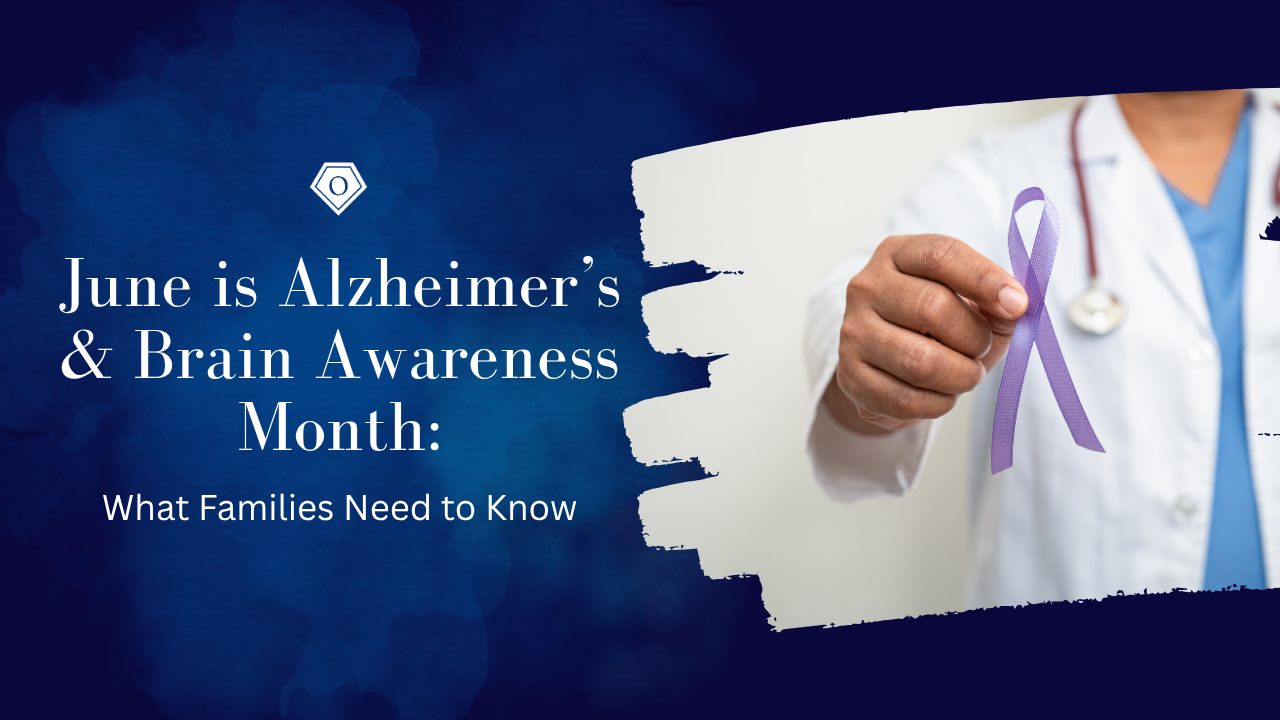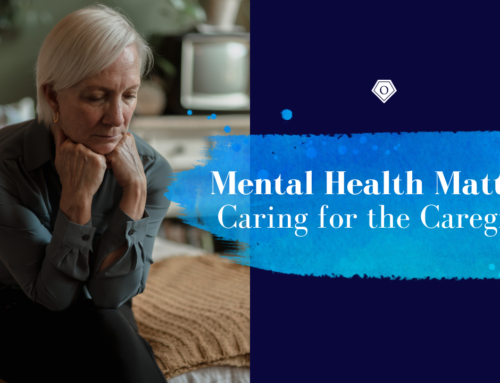June marks Alzheimer’s & Brain Awareness Month, a time to elevate awareness about Alzheimer’s disease and other forms of dementia. At Onyx Home Care here in Daytona Beach, we’re committed to providing compassionate, stage-specific home health care to families navigating this journey.
Alarming Statistics from the Alzheimer’s Association
-
In 2025, an estimated 7.2 million Americans aged 65 and older are living with Alzheimer’s dementia (Alz.org).
-
That number surpassed 7 million for the first time, reflecting a significant rise in prevalence (Alz.org).
-
Between 2000 and 2022, deaths from Alzheimer’s more than doubled (an increase of 142%), while heart disease deaths fell by 2.1% (Alz.org).
-
Alzheimer’s and related dementias are projected to cost the nation $384 billion in 2025, with costs potentially reaching nearly $1 trillion by 2050 (Alz.org).
Why Early Detection Is Vital
Recognizing dementia early offers several critical advantages:
-
Access to medical interventions that may slow progression
-
Time to plan for legal, financial, and care needs
-
Earlier connection to support services, easing stress on families
Early diagnosis empowers families to make proactive, informed decisions aligned with their loved one’s evolving needs.
Early-Stage Signs of Alzheimer’s to Watch For
-
Memory loss that disrupts daily life
-
Forgetting recently learned information, important dates, or repeatedly asking the same questions (Alz.org).
-
-
Challenges in planning or problem-solving
-
Difficulty following a familiar recipe or managing finances, with tasks taking longer than before (Alz.org).
-
-
Problems completing familiar tasks
-
Struggling with everyday activities like driving a familiar route, maintaining a shopping list, or following rules of a game (Alz.org).
-
-
Confusion with time or place
-
Losing track of dates, seasons, or misplacing track of their location (Alz.org).
-
-
Trouble understanding visual images and spatial relationships
-
Experiencing changes in vision, difficulty judging distances or reading, possibly impacting driving (Alz.org).
-
-
New problems with words in speaking or writing
-
Difficulty following conversations, struggling to find the right words, or referring to common items by incorrect names (Alz.org).
-
-
Misplacing things and losing the ability to retrace steps
-
Placing items in odd locations and being unable to backtrack—sometimes even accusing others of stealing (Alz.org).
-
-
Decreased or poor judgment
-
Poor decision-making in finance or personal grooming; neglecting self-care (Alz.org).
-
-
Withdrawal from work or social activities
-
Avoiding social engagement, hobbies, or work due to difficulty following conversations or keeping up with commitments (Alz.org).
-
-
Changes in mood and personality
-
Mood swings, increased anxiety, depression, irritability, suspicion, or fearfulness in response to memory changes (Alz.org).
Why Listing These Signs Matters
-
Educates families on what patterns go beyond “normal age-related forgetfulness.”
-
Encourages early medical evaluation, allowing for potential interventions and planning.
-
Empowers caregivers to identify and respond early—improving outcomes and quality of life.
Dementia Stages & How Home Health Care Helps
| Stage | Characteristics | Home Health Support |
|---|---|---|
| Early (Mild) | Mild memory loss, difficulty with familiar tasks | Medication management, routine structuring, mental stimulation, early caregiver education |
| Middle (Moderate) | Increased confusion, wandering, need for assistance with daily activities | Personal care (bathing, dressing), behavior strategies, respite for family caregivers |
| Late (Severe) | Severe cognitive decline, loss of independence, complex health needs | Skilled nursing, feeding and mobility assistance, coordination with physicians, emotional support for families |
Home health care offers the flexibility to adjust services as dementia progresses—supporting independence in familiar surroundings and preserving quality of life.
Home Health Care vs. Memory Care Facilities
Many families choose home health care over memory care facilities for several reasons:
-
Staying in a familiar environment boosts comfort and reduces anxiety
-
More personalized, one-on-one care tailored to individual needs
-
Greater flexibility in scheduling and choosing services
-
Cost control, often less expensive than full-time residential care
-
Maintains family involvement, preserving emotional connections and dignity
These factors often make home health care the preferred choice, especially when transitioning through early or middle stages of Alzheimer’s.
How We Support Your Family
At Onyx Home Care, we offer:
-
Dementia-trained caregivers and nurses
-
Stage-appropriate care plans for early, middle, and late stages
-
Respite care, education, and emotional support for families
-
Coordination with medical teams and adjustment of care as needs change
Ready to Learn More?
Contact us today to learn how our compassionate, personalized home health care can support your family during Alzheimer’s & Brain Awareness Month—and every month.
Dementia & Alzheimer’s Care
Onyx Home Care’s neurological disorder care is built around a system of support. This service includes skilled home care as well as a unique program that centers on the patient’s interests and stage of illness. Our goal is to see happy family members, patients and caregivers. Often times, caregivers feel remote. Our team includes each person in the home care process to provide inclusive care that helps the patient thrive.






